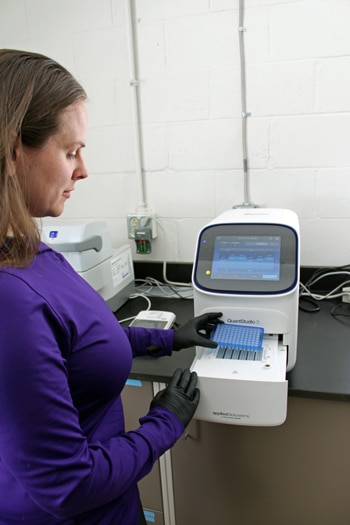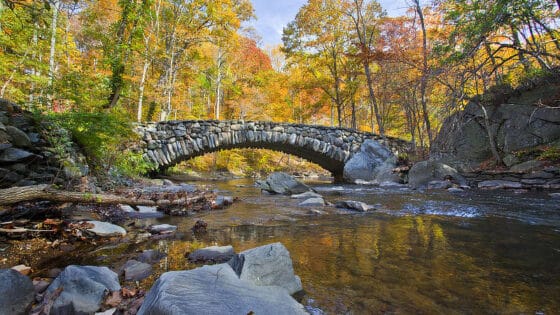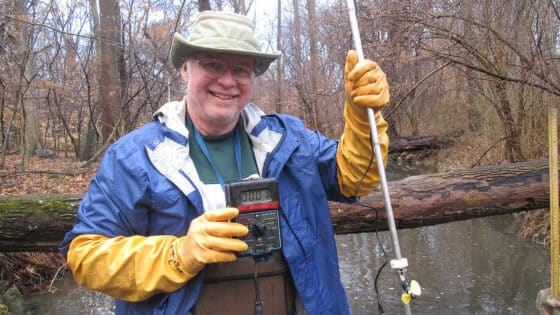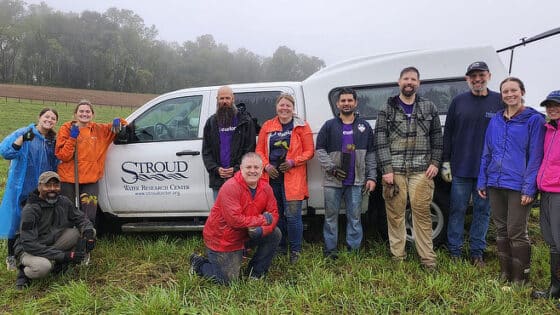
By Diane Huskinson
Like a CSI forensic investigator, Laura Zgleszewski is asking the question, “Who are you?” Only instead of hunting criminals, she’s identifying the likely sources of fecal bacteria in streams, a potential human health risk.
In the Stroud Center’s microbiology lab, surrounded by an array of gadgets and beakers, Zgleszewski taps the slick touchscreen of a large white machine. A drawer opens, and she inserts a small tray with DNA extracted from water samples.
Dyes will bind to the DNA in the samples and fluoresce. In a few hours, she will know the type and quantity of species-specific bacteria in the water — bacteria that are found in the digestive systems of humans, cows, birds, pigs, or some other animals.
“We are looking for a group of bacteria called Bacteroides,” says Zgleszewski, a research technician in the Microbiology Group led by Jinjun Kan, Ph.D.
“Humans have species of Bacteroides that are different from cow Bacteroides, horse Bacteroides, or goose Bacteroides, so we use this machine to search for genes from those specific species to tell us if fecal matter has contaminated our stream, and what might be the source of the contamination: a leaking septic tank introducing human Bacteroides to the stream, or a dairy farm contributing cow Bacteroides.”
The new real-time and quantitative polymerase chain reaction (qPCR) machine will also come in handy for identifying the individual roles different species of bacteria play in the nitrogen cycle. “There are, for example, bacteria with genes that allow them to release nitrogen gas and N2O, a greenhouse gas, into the atmosphere,” says Zgleszewski.
“Stream health, nitrogen cycling, and global climate change are closely linked. If we know what the bacteria are doing, we can figure out who are driving the carbon and nitrogen cycling in stream ecosystems, who are contributing to climate change, and who are maintaining the health and integrity of our fresh water.”
How You Can Help
Many of the tools and instruments our scientists use to advance knowledge and stewardship of fresh water, including the qPCR machine, are not covered by grants and are purchased using funds from our generous supporters.
If you would like to support clean fresh water, please donate now.



